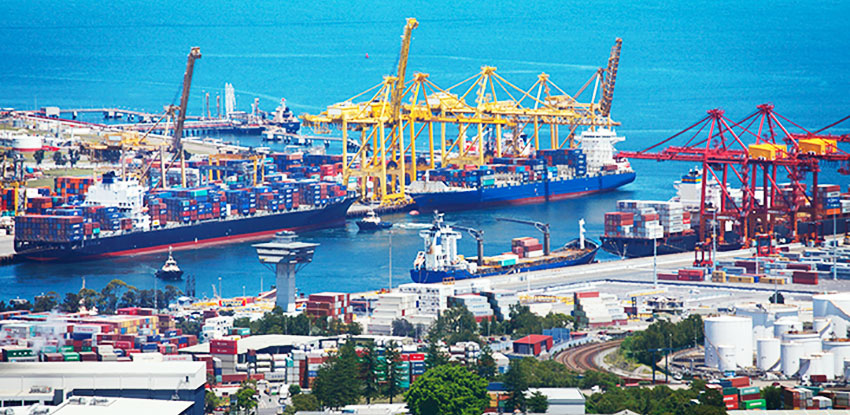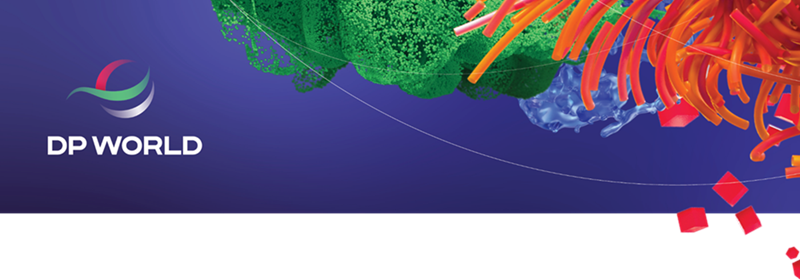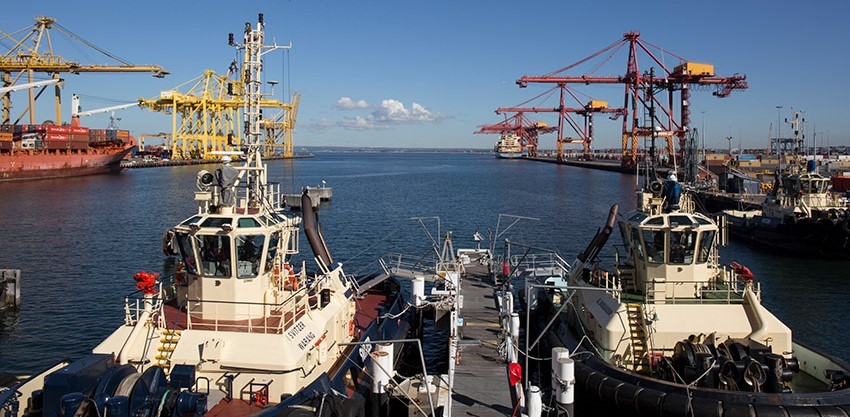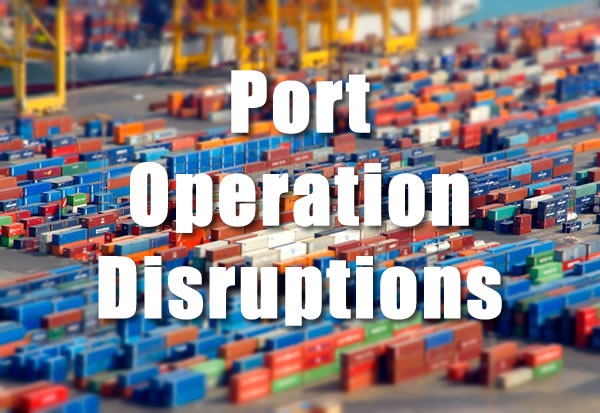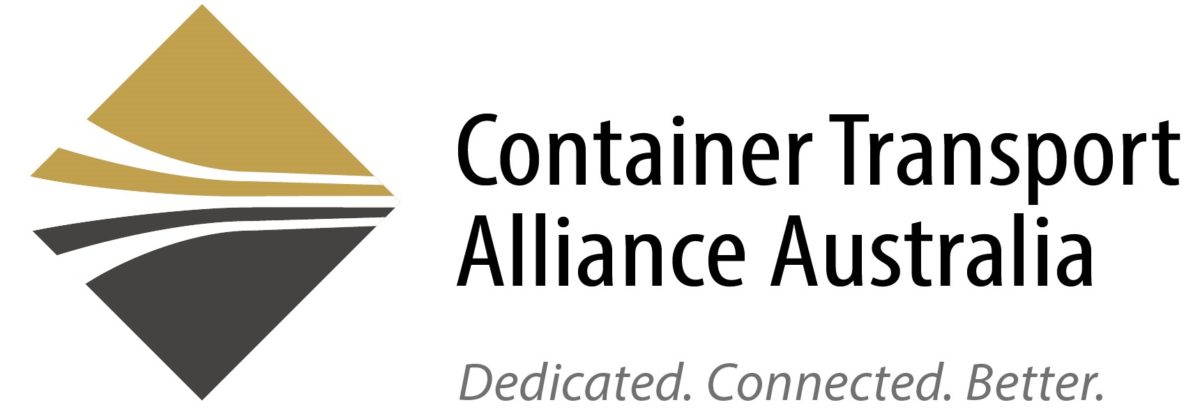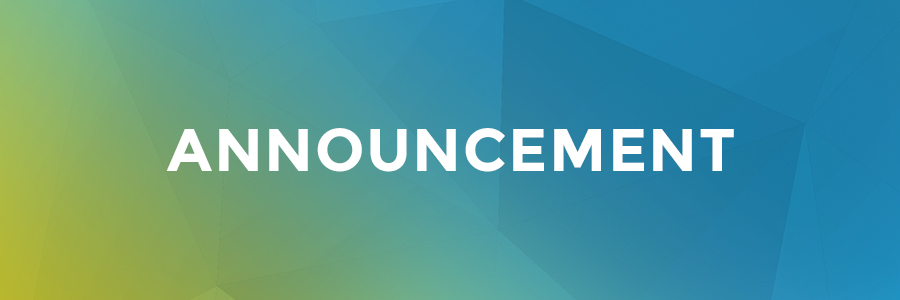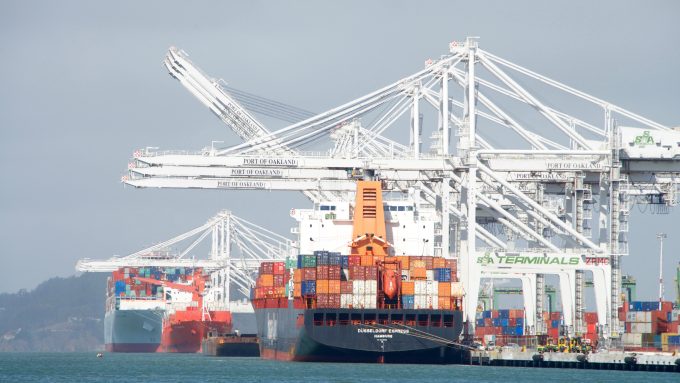Current DP World Situation:
Below is an industry Newsflash that gives the latest update on what is happening in the DP World vs Australian Maritime Union dispute, as well as the various interviews and publications that have run articles on the work the Freight Industry in general has been involved with in trying to bring this matter to public attention.
If this situation is not resolved quickly the situation is likely to get a lot worse, GPSM will continue to update all clients as further news comes to hand.

FTA / APSA feature on Channel 7 “Sunrise” – threat of waterfront disruption escalates
MEDIA UPDATEÂ 13
Today marks the final day of the current round of bargaining between DP World and the Maritime Union of Australia (Tuesday 9 January to Thursday 11 January 2024), with Protected Industrial Action (PIA) scheduled to resume tomorrow through to Monday 22 January 2024.
In response to the DP World advice about docking workers’ pay for taking PIA (effective tomorrow, Friday 12 January 2024), alarming overnight media speculation suggests the union’s PIA may escalate to include delays to servicing arriving vessels for 16 hours and not to work on some ships indefinitely.
If true, will this force the hand of DP World to take more drastic action?
When Freight & Trade Alliance (FTA) and the Australian Peak Shippers Association (APSA) interviewed Nicolaj Noes (Executive Vice President Oceania – APAC of DP World) on 5 December 2023, the option of a lockout of employees was not ruled out.
It is important to note that this was a strategy deployed by Svitzer tug operator last year when Nicolaj was CEO. In terms of the Svitzer experience, it had the desired result of forcing Fair Work Commission (FWC) intervention with independent arbitration.
This is a high risk strategy should it be deployed by DP World.
While they may well get the same positive outcome as the Svitzer experience, what would happen next should a lockout of employees be deployed by DP World without FWC or federal government intervention?
Would we face an escalation of crippling disruption experienced in infamous 1998 Patrick waterfront dispute?
Putting this speculation aside, FTA / APSA will continue to pressure the federal government and FWC for intervention.
For members’ reference, FTA / APSA were again active in the media yesterday highlighting the implications on Australian trade, the broader economy and the ‘cost of living’ as a result of the failed bargaining process to date – this included a live interview on Channel 7 ‘Sunrise’, ABC Perth, leading agriculture publication Stock and Land, and highly respected US publication Journal of Commerce..
ABC Perth – Christian Horgan interviews Nicolaj Noes (DP World) and Paul Zalai (FTA/APSA) – recording HERE
Channel 7 Sunrise – Mark Beretta OAM interviews Paul Zalai (FTA / APSA) – recording HERE
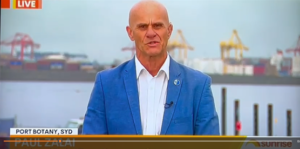
Journal of Commerce – Australian shippers face worsening delays from DP World-dockworkers dispute
Reaching an international audience, JOC referenced FTA / APSA before quoting an anonymous APSA member (you know who you are, thank you).
QUOTE:
Paul Zalai, director of the shippers group Freight & Trade Alliance said international vessel delays now vary from two to five weeks.
Highlighting the impact on shippers, a senior executive at a major grain and pulses exporter said not only are cargo owners having to deal with the uncertainty of freight delays, but they’re also being charged substantial extra costs by carriers.
“Vessel schedule changes and omissions have the biggest impact on us,†the source told the Journal of Commerce. “With shipping lines having container availability issues for food-quality boxes, we have to take what we can when we can.
“When terminals close due to union action or carrier schedules change, the containers are either stuck in our own yard, returned to already full storage yards or sent to port where they can be moved back to storage yards,†he added. “All of this double, triple handling comes at a cost.â€
He said attempts to recoup the additional costs are ongoing, “but progressing very, very slowly.â€
Stock and Land – Port of Melbourne dispute adding hundreds of dollars to export costs
Implications of the failed bargaining between DP World and the union was highlighted in a detailed article referencing APSA member Mark Lewis from Riordan Grains (cost to grain exporters through Melbourne) and FTA / APSA.
QUOTE:
“Shipping lines are charging additional fees due to the industrial action and are not able to help mitigate delays by offering alternate services, particularly to Asian destinations,” he said.
“The lack of predictability of shipping schedule is also seeing many exporters, who rail from regional centres direct to the wharves, now moving and storing their loaded containers at nearby port facilities.”
This was adding transit delays, double-handling costs and additional truck movements, Mr Zalai said.
“Trains often operate on a ‘take or pay’ method, meaning you either use the slot or pay for it anyway,” he said.
“The decision for our regional exporters then becomes whether to double handle the container at the port and pay for storage or pay for the empty train slot and rail it again the following week.”
Mr Zalai said the FTA had not yet had a response from the federal government.
He said members were “hammering” the FTA, letting it know the impact of the dispute.
“We just want the issue resolved,” he said.
“We are not siding with the unions, or the employer, we just need business continuity and to have our wharves open.
“The government is very proud to talk about free trade agreements, trade liberalisation and having a better relationship with China, which is all fantastic and very important, but I think it counts for nothing if we can’t get our boxes (containers) on and off ships.”
FTA / APSA MEDIA COVERAGE REFERENCING PROTECTED INDUSTRIAL ACTION
9 JAN 2024 : Daily Cargo News – MORE MUA PIA, DPW CALLS FOR GOVT INTERVENTION
9 JAN 2024 : Farm Weekly – Ongoing wharf dispute is resulting in multi-million dollar costs
8 JAN 2024 : Australian Financial Review – DP World to dock pay in escalation of waterfront battle
8 JAN 2024 : Triple M Network, SBS and Channel 10 – Industrial dispute impacts on small business
5 JAN 2024 : Australian Financial Review – Australian grape growers fear export hit from port dispute
5 JAN 2024 : Sydney Morning Herald – Shoppers warned to expect empty shelves, delays if ports strike continues
4 JAN 2024 : Australian Financial Review : Australian grape growers fear export hit from port dispute
4 JAN 2024 : ABC Radio National – Breakfast – Australia”s response to Houthi attacks on shipping in the Red Sea
4 JAN 2024 : SBS – Disruption to trade is threatening innocent lives
3 JAN 2024 : 2GB Sydney – Red Sea conflict having impact on Australian trade
2 JAN 2024 : The Australian Financial Review : Industrial action at ports ‘bigger problem’ than Red Sea attacks
2 JAN 2024 : The Australian : Australian trade flowing from Asia is safe but eventually Red Sea disruptions will hit home
28 DEC 2023 : The Australian Business Journal – Global Trade Faces Uncertainty as Red Sea Tensions and Port Strikes Threaten Supply Chains
27 DEC 2023 : SMH: Send navy to the Red Sea for sake of local economy: Dutton
27 DEC 2023 : News.com.au – Price hike fears over Red Sea shipping chaos, crippling port strikes
27 DEC 2023 : The Australian – Price hike fears over Red Sea shipping chaos, crippling port strikes
21 DEC 2023 : The Australian – Red Sea call ‘leaving our allies in the lurch’
19 DEC 2023 : Stock and Land – Red Sea freight blockage has potential to disrupt all supply chains
19 DEC 2023 : Australian Financial Review – Freight, oil climb as Red Sea attacks shut down shipping
17 DEC 2023 : ABC News – UK and US shoot down more Houthi drones in the Red Sea as shipping companies pause operations
MEMBER FEEDBACK
We again wish to remind members that while we have an excellent relationship with a wide cross-section of trade, agriculture and mainstream media, we need of “real life” experiences highlighting the impacts to business and the wider economy – this is essential to maintain the momentum and interest for what appears will be a long, drawn out campaign.
Should any member or industry participant be prepared to go on the public record, please contact me at [email protected] on 0408 280123.
Paul Zalai – Director FTA | Secretariat APSA | Director GSF
Copyright © 2024 Freight & Trade Alliance (FTA) Pty Ltd, All rights reserved.

